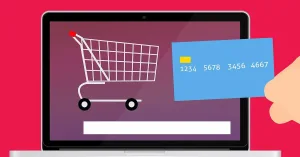
Are you thinking of starting your own company? If so then you need to make sure you have your finances in order before hanging up your Open sign. The following small business accounting checklist is a great guideline to make sure you’re ready for your Grand Opening.
Open business accounts.
Co-mingling your business and personal finances is dangerous, and it can lead to problems down the road. While it might seem like a hassle to keep a separate checking and savings account for your business and your personal life, you’ll be glad you took the time to set this up when orders start rolling in.
Create your forms.
Receipts, invoices, and everything in between is how you’ll communicate with your customers about money issues. Make sure these documents are professional and in proper legal standing before the first orders start coming in.
Find a good tax consultant and/or accountant.
Depending on your business plan, you may only need one of these professionals, but you want to find the right one before you need him or her. Waiting until you’re over your head with tax documents and bank forms is not a good time to start interviewing candidates.
Select your business structure.
Most small businesses begin as sole proprietorships, using the social security number of the owner to identify itself. Once your business grows and requires employees, you might want to incorporate and at that point you will need an EIN. This section of the IRS site may be helpful to determine the best structure for your business.
Set up your accounting software.
A lot of programs will guide you through the process of setting up data forms and spreadsheets. They can also produce the forms you need to conduct business on a professional basis (see item #2). Becoming familiar with your accounting program while you’re still getting set up for business is a much better option than waiting until you’re about to be audited or your tax preparer is asking for your documents. By getting things set up now, you’ll be able to start your first day of business with a system in place to track every order and account for every penny of income.
Establish accounts with vendors.
Depending on the supplier, it may take a few minutes or even a few weeks to get these accounts set up. Start now so that you’ll have materials ready to go. Also remember to set up business accounts for your utilities and other recurring expenses. Set these up under your business name, not your personal name, so that your accounts are not co-mingled.
Use your business plan to develop goals.
Based on your business plan, create a set of goals, or benchmarks, for your new business. Knowing how much you need to make in sales each month will give you more than just motivation; it will also allow you to judge your success.



















Add comment